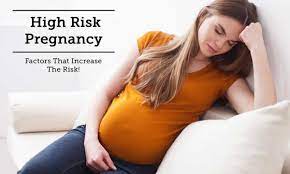Safe & Compassionate High-Risk Pregnancy Care in Aurangabad
High-Risk Pregnancy
A high-risk pregnancy is a pregnancy that involves increased health risks for the pregnant person, fetus or both. Certain health conditions and your age (being over 35 or under 17 when pregnant) can make a pregnancy high risk. These pregnancies require close monitoring to reduce the chance of complications.
What is a high-risk pregnancy?
All pregnancies carry risks. The definition of a “high-risk” pregnancy is any pregnancy that carries increased health risks for the pregnant person, fetus or both. People with high-risk pregnancies may need extra care before, during and after they give birth. This helps to reduce the possibility of complications.
However, having a pregnancy that’s considered high risk doesn’t mean you or your fetus will have problems. Many people experience healthy pregnancies and normal labor and delivery despite having special health needs.
What are common medical risk factors for a high-risk pregnancy?
1 Autoimmune diseases, such as lupus or multiple sclerosis (MS).
COVID-19.
Diabetes.
Fibroids.
High blood pressure.
HIV/AIDS.
Kidney disease.
Low body weight (BMI of less than 18.5).
Mental health disorders, such as depression.
Obesity.
Polycystic ovary syndrome (PCOS).
Thyroid disease.
Blood clotting disorders.
Pregnancy-related health conditions that can pose risks to the pregnant person and fetus include:
2 Birth defects or genetic conditions in the fetus.
Poor growth in the fetus.
Gestational diabetes.
Multiple gestation (pregnancy with more than one fetus, such as twins or triplets).
Preeclampsia and eclampsia.
Previous preterm labor or birth, or other complications with previous pregnancies

